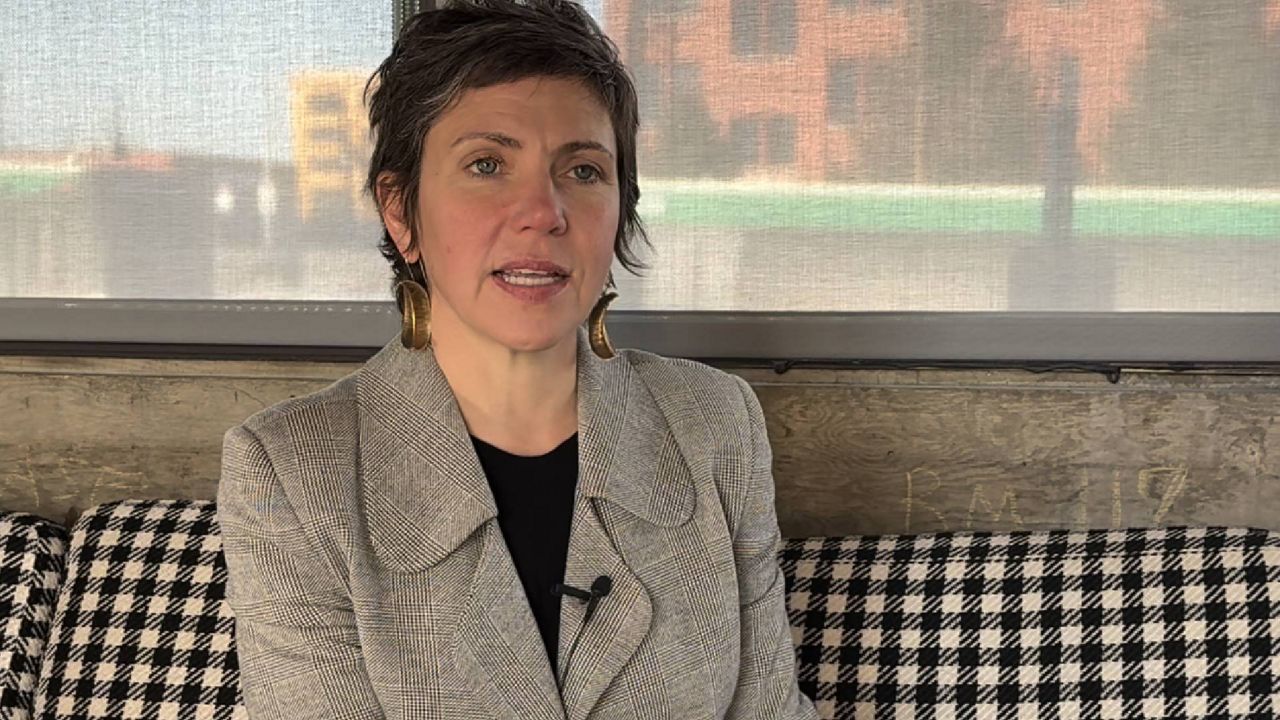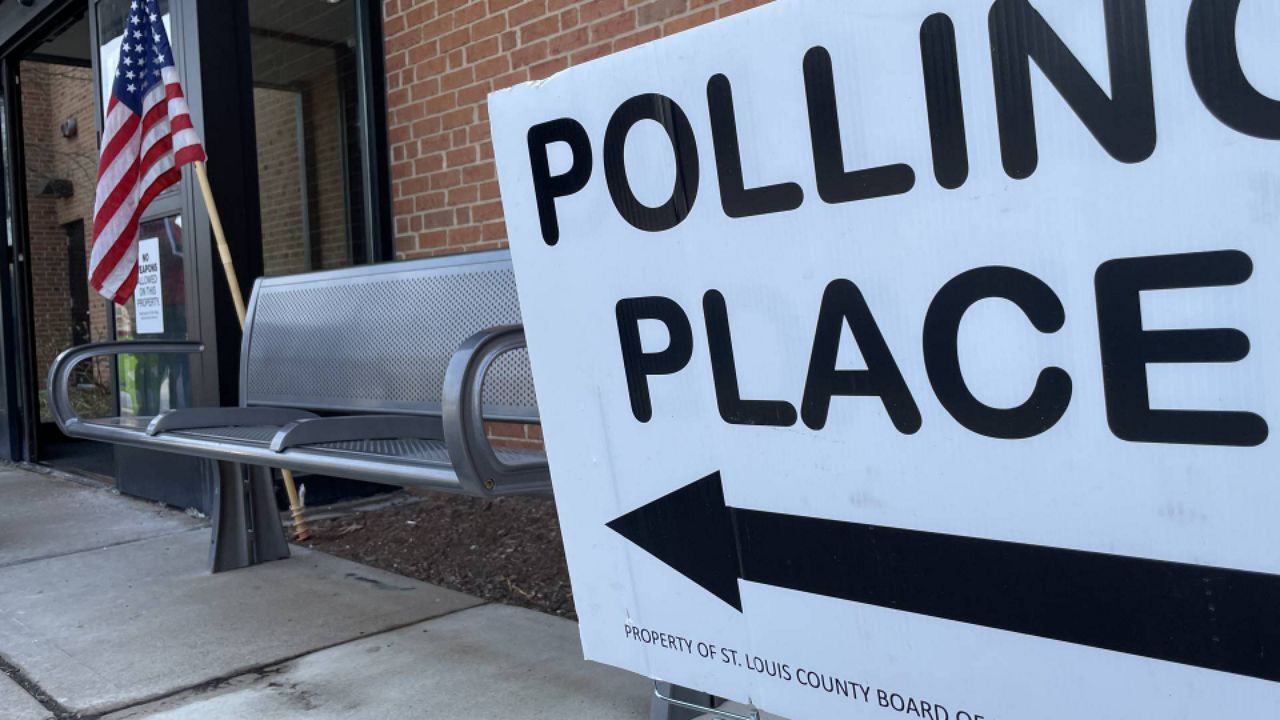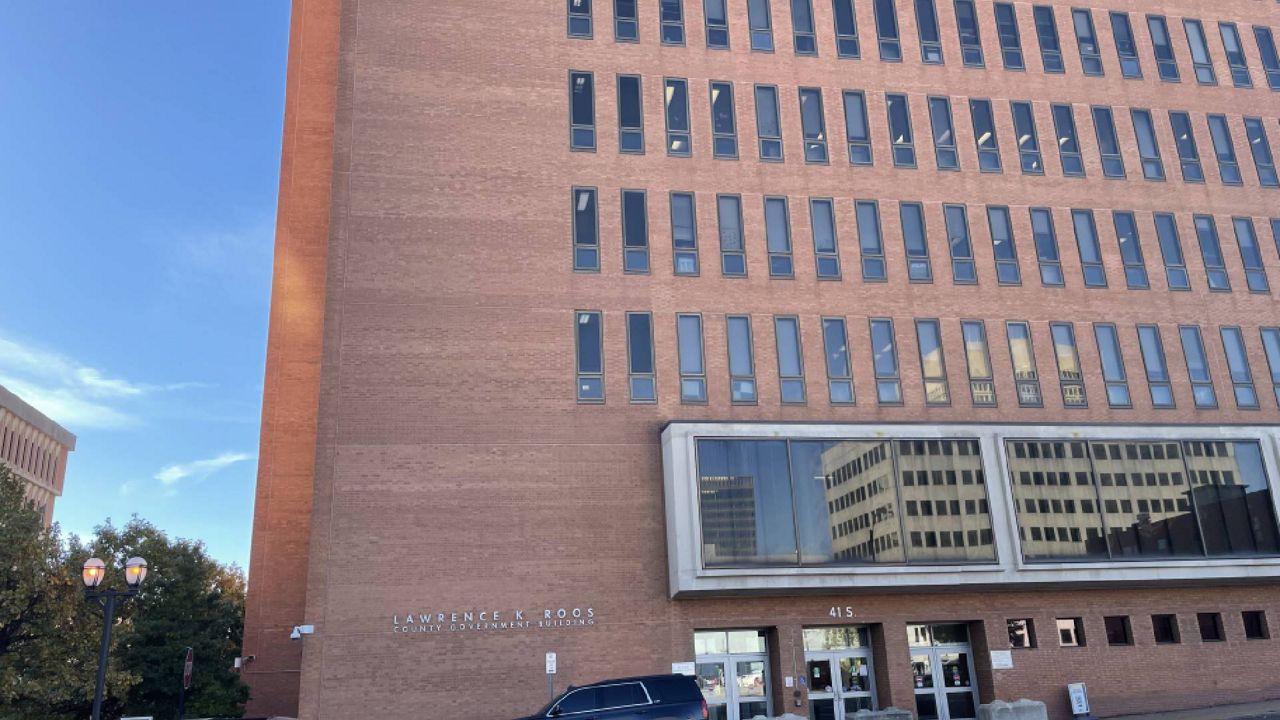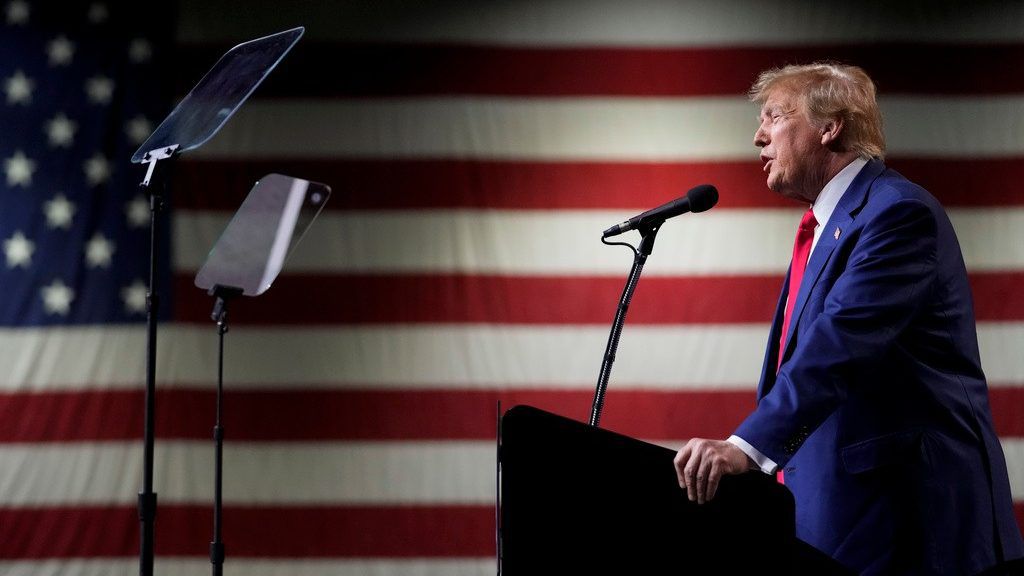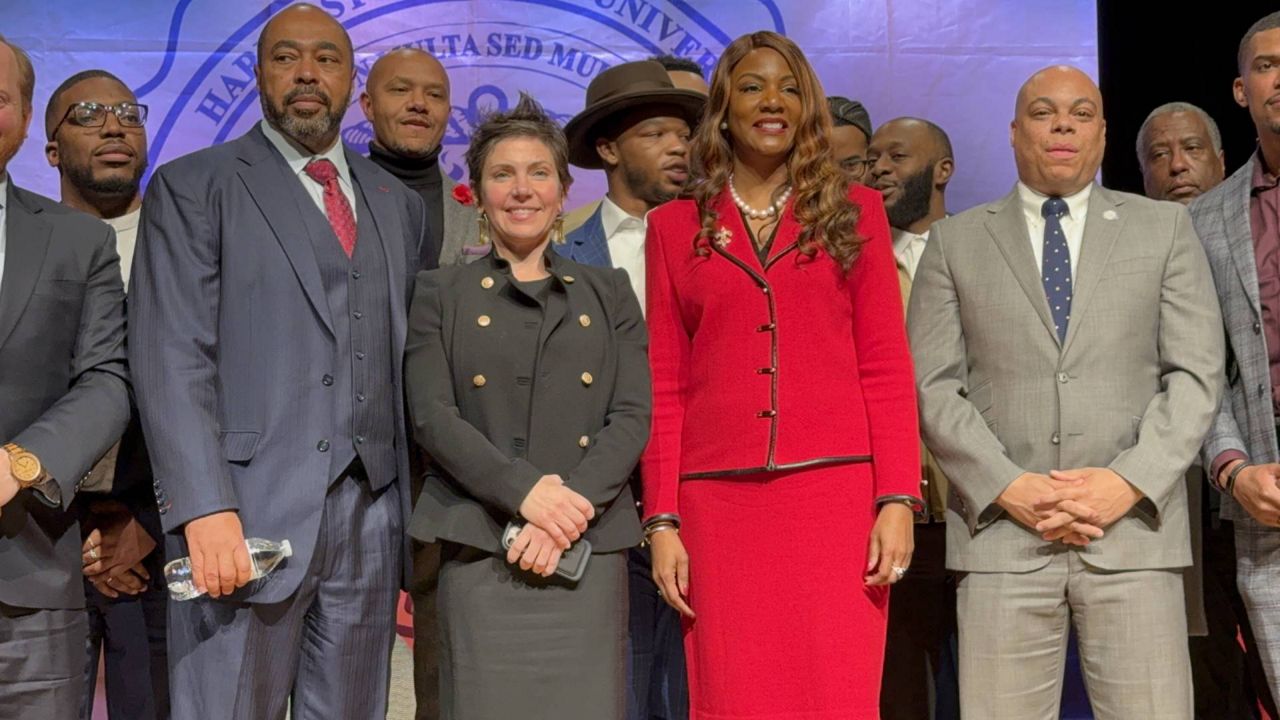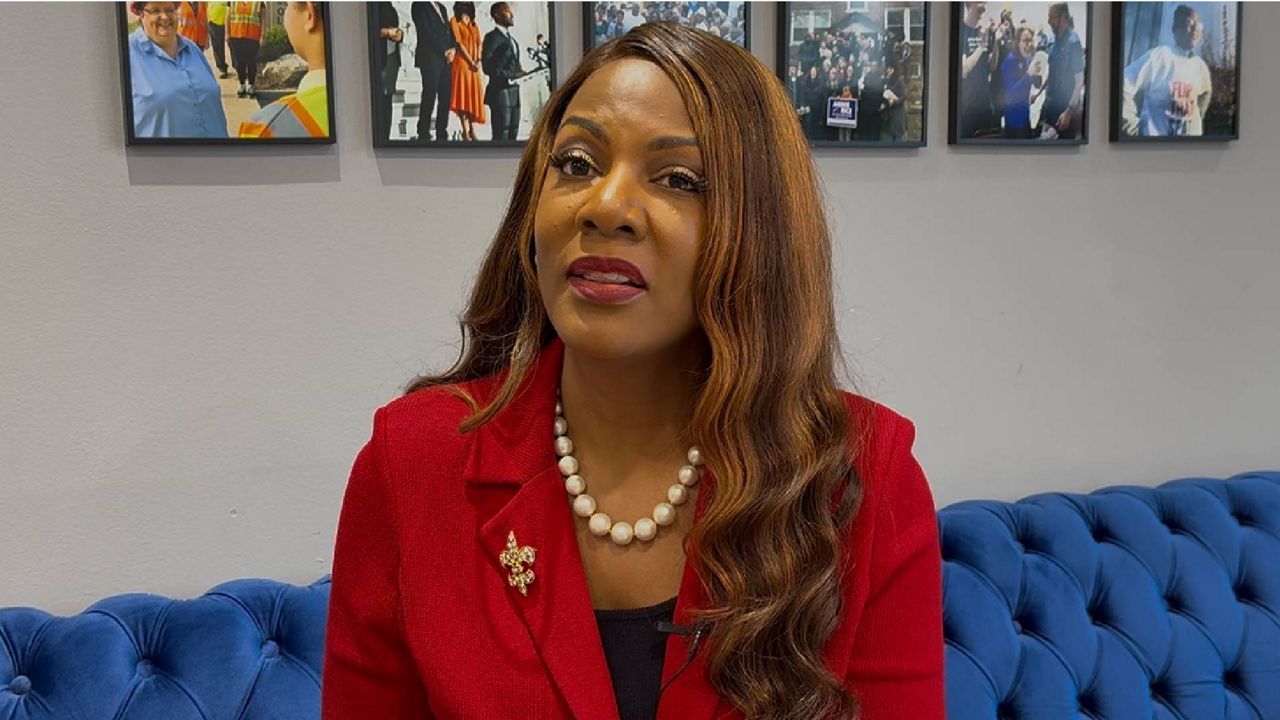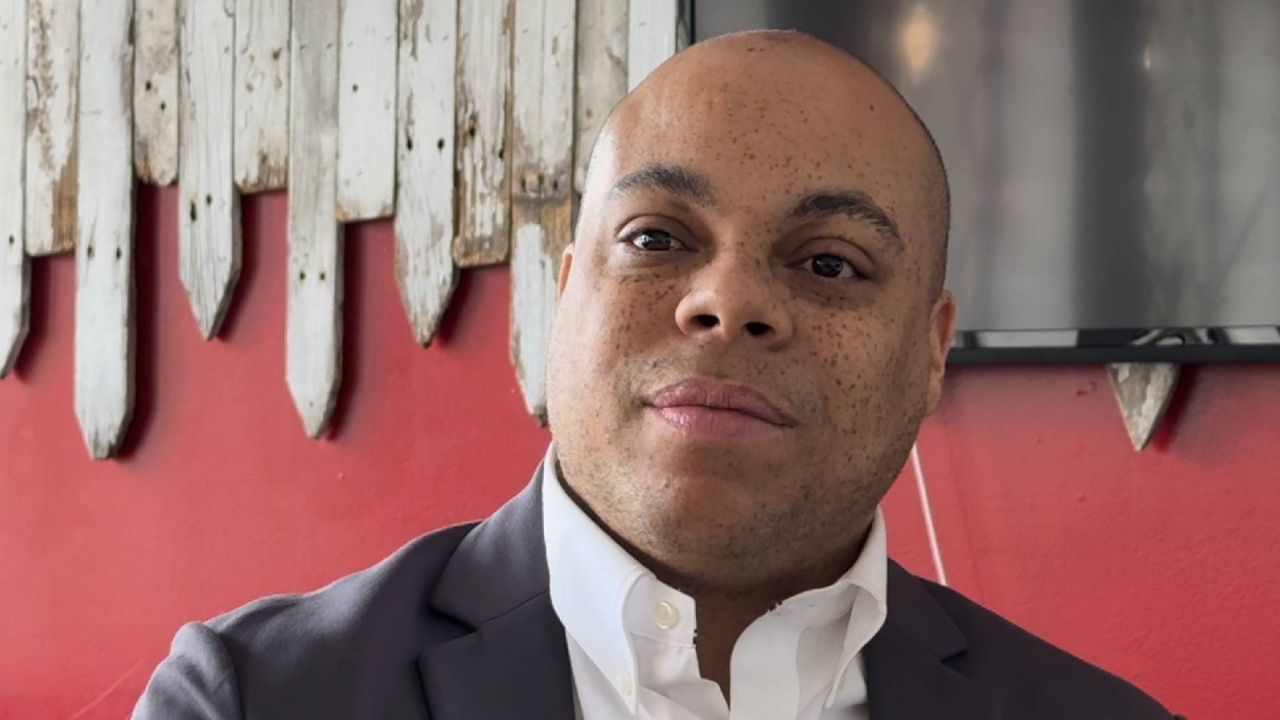ST. LOUIS–On March 4, voters in St. Louis will decide which two candidates in a four-way race for mayor will advance to the April 8 general election.
“No excuse” absentee voting is already underway using the city’s approval voting system, which allows voters to choose as many candidates as they want in the primary, with the top two candidates moving on to the April election.
Spectrum News extended interview requests to all four candidates–the incumbent, Tishaura Jones, 8th Ward Alderwoman Cara Spencer, Recorder of Deeds Michael Butler and businessman Andrew Jones and is releasing them in the order they were conducted. Questions were edited for clarity.
What can voters expect on day one or the first 30 days of a Spencer administration?
“We’re going to be focusing on the basics of city government, making sure that we have a service delivery operation that works well as far as the potholes, your trash, those sorts of things, so right off the bat we’re going to be focusing on improving those systems.”
What’s the metric to judge improved services by?
“Transparency in the delivery of city services is key so the reporting back to the public how long it takes to fill a pothole and improving those systems, being very, very transparent about it, and I want the lived experience of our St. Louisans driving around or cycling around our community to really see and feel a difference in their roads and infrastructure and how the city operates.”
Everyone’s competing for employees. What would you do to make St. Louis a more welcoming, inviting place to work?
“We’re going to be breaking down the barriers to getting job applications in, reducing the time it takes to get a call back and improving pay and being an employer that employees want to work for. I hear over and over again that it’s hard to work for the city, that the bureaucracy of getting the tools they need, whether it’s computers or the basic things within city hall are not operating optimally and so being an employer that our employees want to work for is a key to retaining and attracting a quality workforce.”
What will you do to help north St. Louis that isn’t currently being done?
“It comes down to those basic city services, so making sure that we’re filling the potholes, doing the street repair, all that sort of thing in a more timely, more efficient, more effective manner and we’re going to have to have some very, very strategic conversations about how to make the investments in north St. Louis really work. We have a large swath of our city’s geographical area that has really seen a tremendous population loss over the last few years. Rebuilding that population base is going to take time, take conversations and it’s going to take a lot of work and strategic thinking to get us there.”
The next mayor may not have authority over the St. Louis Metropolitan Police Department. The Missouri House last week passed legislation that would put the agency under a state-appointed board. The Senate could consider similar legislation on the floor again this week. There are several versions of the legislation but each calls for the mayor to at least be a member of that board. If the mayor could recommend appointees, what would you be looking for?
“Thoughtful approach to policy, centered around building trust within our community, I think it's incredibly important to remember that the witnesses and victims of crime are those folks that can be the most helpful in solving crime and so we need to make sure that we're centered around building trust in our communities from within our police department so those policies are important. And having a say in how we're deploying our limited resources that we currently do have within our police department, the districts the responses the involvement of the mayor and whether or not we have a drug unit…all these types of internal workings of the police department are very important.”
What’s your biggest potential weakness in office and how do you compensate for it?
“The enormity of the task of running city government. There are so many aspects of being a city and serving its residents, not being an expert in every aspect of this… but I think really how to address those weaknesses is to hire competent staff and really involve the broader community in solution-making and I have no doubt that we have a wide range of people in businesses and community members who are ready to step up and be part of the solution.”
Each candidate was given the chance to dispel what they perceive to be the biggest misconception about them or their campaign. Spencer chose to address the attack from Mayor Jones’ campaign that accuses developer Bob Clark of gaining influence over Spencer and her campaign due to a six-figure campaign donation in addition to helping her raise more money from the business community.
“St. Louis can't be bought. I have a longstanding track record of standing up to special interests whether it's the privatization of the airport, slumlords and I stand very proudly on the side of St. Louisans and our community progress.”
